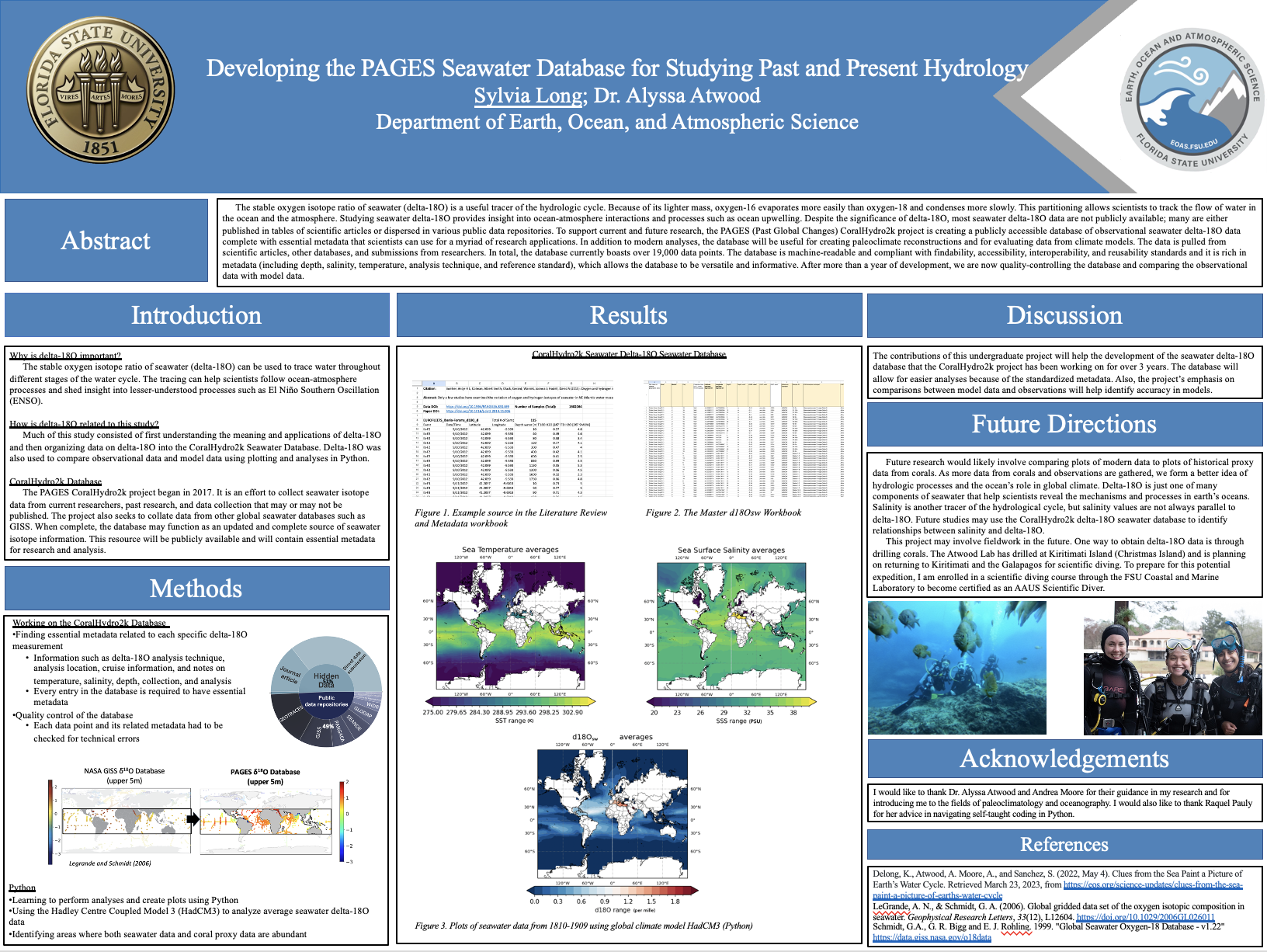Research Symposium
23rd annual Undergraduate Research Symposium, April 6, 2023
Sylvia Long Poster Session 3: 2:45 pm - 3:45 pm/ Poster #365
BIO
My name is Sylvia Long and I am a second-year undergraduate. I have doing research with the Atwood Lab since May 2022. My research interests range from climatology to marine biology and ecology. I am currently becoming certified as an AAUS Scientific Diver to engage in future underwater research.
Developing the PAGES Seawater Database for Studying Past and Present Hydrology
Authors: Sylvia Long, Alyssa AtwoodStudent Major: Environment & Society, Biological Science
Mentor: Alyssa Atwood
Mentor's Department: Department of Earth, Ocean, and Atmospheric Science Mentor's College: College of Arts and Sciences Co-Presenters:
Abstract
The stable oxygen isotope ratio of seawater (delta-18O) is a useful tracer of the hydrologic cycle. Because of its lighter mass, oxygen-16 evaporates more easily than oxygen-18 and condenses more slowly. This partitioning allows scientists to track the flow of water in the ocean and the atmosphere. Studying seawater delta-18O provides insight into ocean-atmosphere interactions and processes such as ocean upwelling. Despite the significance of delta-18O, most seawater delta-18O data are not publicly available; many are either published in tables of scientific articles or dispersed in various public data repositories. To support current and future research, the PAGES (Past Global Changes) CoralHydro2k project is creating a publicly accessible database of observational seawater delta-18O data complete with essential metadata that scientists can use for a myriad of research applications. In addition to modern analyses, the database will be useful for creating paleoclimate reconstructions and for evaluating data from climate models. The data is pulled from scientific articles, other databases, and submissions from researchers. In total, the database currently boasts over 19,000 data points. The database is machine-readable and compliant with findability, accessibility, interoperability, and reusability standards and it is rich in metadata (including depth, salinity, temperature, analysis technique, and reference standard), which allows the database to be versatile and informative. After more than a year of development, we are now quality-controlling the database and comparing the observational data with model data.
Keywords: marine, coral, isotope


